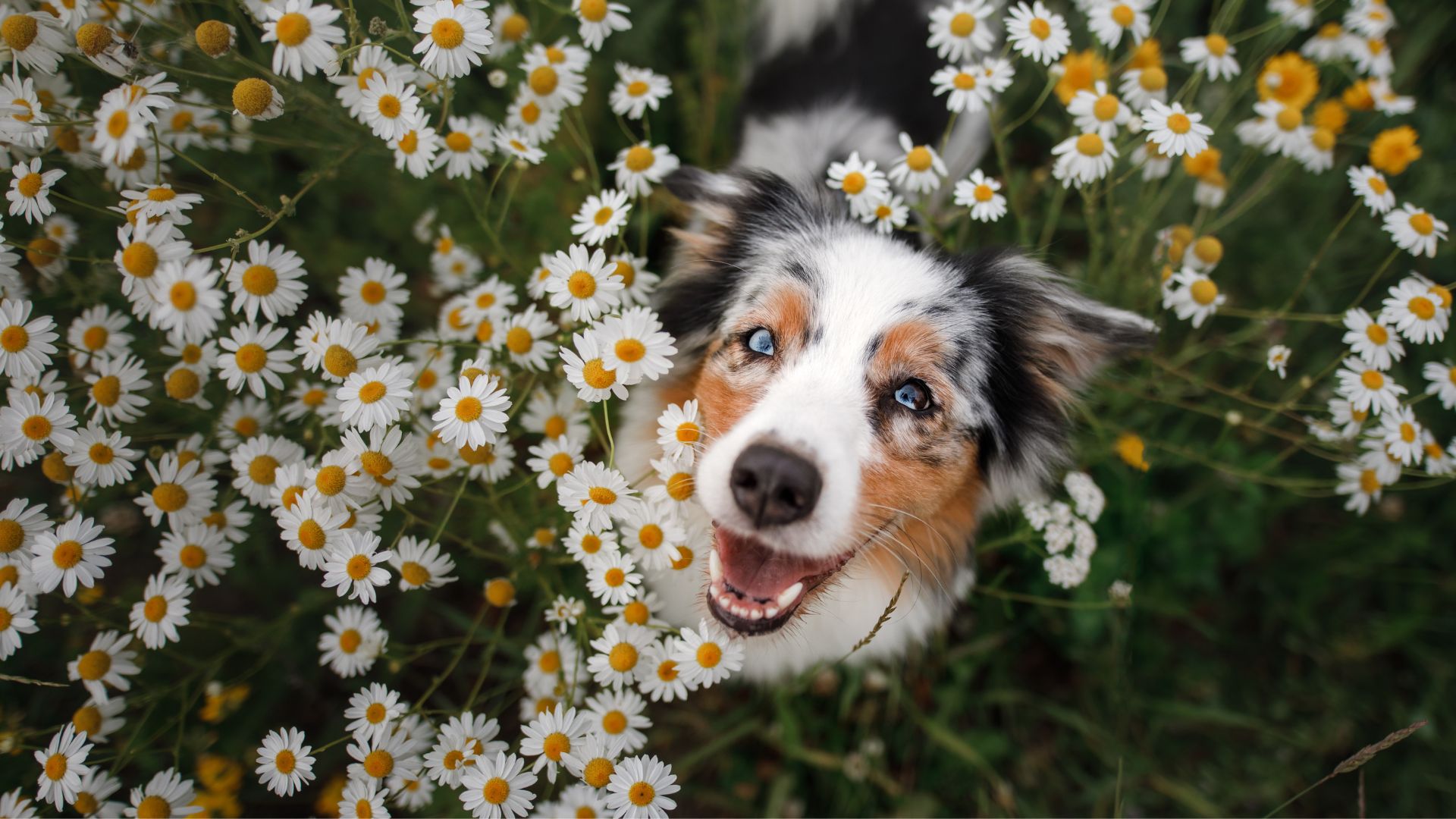Flowers That Are Toxic and Non-Toxic to Dogs in Colorado Springs
August 17, 2024
Flowers That Are Toxic and Non-Toxic to Dogs in Colorado Springs
August 17, 2024

Creating a vibrant garden in Colorado Springs while keeping it safe for your furry friends can be a balancing act. Some beautiful plants and flowers can pose serious risks to your dog’s health if ingested. In this guide, we’ll explore both dog-friendly and potentially toxic plants that grow in Colorado Springs, helping you make informed choices for your garden.
Disclaimer: Always double-check with your local plant nursery for specific information about plant toxicity and suitability for your area. If you are concerned about your pet/s ingesting any plants, please seek veterinary advice immediately.
Non-Toxic Flowers Safe for Dogs in Colorado Springs
- Zinnias
Zinnias are colorful and easy to grow, making them a popular choice in Colorado Springs. While they are generally non-toxic to dogs, ingesting large amounts may cause mild stomach upset. - Snapdragons (Antirrhinum majus)
Snapdragons come in a wide range of colors and are non-toxic to dogs, according to the ASPCA. However, if consumed in large quantities, they can cause mild digestive issues. - Sweet Alyssum (Lobularia maritima)
Sweet alyssum, known for its clusters of small white, pink, and purple flowers, is not only non-toxic to dogs but is also safe for cats and horses. - Catmint (Nepeta)
Despite its name, catmint is safe for both cats and dogs. This perennial thrives in Colorado’s climate and offers months of beautiful blooms while withstanding some disturbance from curious pets. - Russian Sage (Perovskia atriplicifolia)
Russian sage is a drought-tolerant, low-maintenance plant that thrives in dry Colorado summers. Its fragrant foliage and delicate purple flowers are non-toxic to dogs and can handle light paw traffic. - Asters (Symphyotrichum spp.)
Asters are a favorite for adding late-season color to your garden. These non-toxic plants are durable enough to tolerate a bit of rough play from pets. - Creeping Phlox (Phlox subulata)
Creeping phlox forms a lush carpet of colorful flowers in the spring and is safe for dogs. This ground cover is perfect for borders, slopes, and rocky areas where it can thrive in Colorado’s unique conditions. - Cranesbill (Geranium spp.)
Cranesbill, or hardy geraniums, are excellent for pet-friendly gardens. They’re non-toxic and provide long-lasting blooms that can withstand a bit of paw traffic.
Toxic Flowers and Plants to Avoid
While some flowers are pet-friendly, others can be harmful—even deadly—if ingested. Below are some common plants found in Colorado that should be avoided:
- Marigolds (Tagetes spp.)
Pot marigolds (Calendula officinalis) are generally non-toxic, but other types, like African marigolds, can cause mild irritation and stomach upset. It’s best to limit your dog’s exposure to marigolds, especially if they’re prone to nibbling on plants. - Coleus (Plectranthus scutellarioides)
Coleus plants are toxic to dogs due to the presence of essential oils. Symptoms of coleus toxicity include vomiting, diarrhea, lethargy, and more severe reactions like seizures. - Foxglove (Digitalis spp.)
Foxglove is highly toxic to dogs, cats, and even humans. All parts of the plant contain compounds that can lead to severe heart issues if ingested. - Larkspur (Delphinium spp.)
Larkspur is another beautiful but dangerous plant that can cause vomiting, tremors, and even death in dogs. - Rhododendron (Rhododendron spp.)
This popular ornamental shrub is extremely toxic to dogs, with ingestion leading to symptoms like drooling, vomiting, and potentially fatal heart issues. - Milkweed (Asclepias spp.)
While it’s a vital plant for monarch butterflies, milkweed is toxic to dogs and can cause digestive distress, breathing difficulties, and more. - Black Walnut (Juglans nigra)
The nuts, leaves, and roots of black walnut trees are toxic to dogs and can lead to tremors, seizures, and even death.
Keeping Your Dog Safe with a Dog-Friendly Garden
Choosing non-toxic plants is just one part of creating a safe garden for your pets. Here are some additional tips:
- Use Pet-Safe Mulch: Avoid cocoa mulch, which is toxic to dogs, and opt for pine, cedar, or hemlock mulches instead.
- Watch for Pesticides: Use pet-safe fertilizers and pesticides, and keep your pets away from treated areas until they’re safe.
- Train Your Dog: Teaching your dog not to chew on plants is essential, even with non-toxic options in your garden.
Hiring a Landscape Designer in Colorado Springs
Selecting the right flowers and plants for your garden in Colorado Springs doesn’t mean sacrificing beauty for safety. By incorporating non-toxic varieties and staying mindful of potential hazards, you can enjoy a vibrant landscape while keeping your furry friends safe.
Contact us at Alpine Landscaping to get started.

